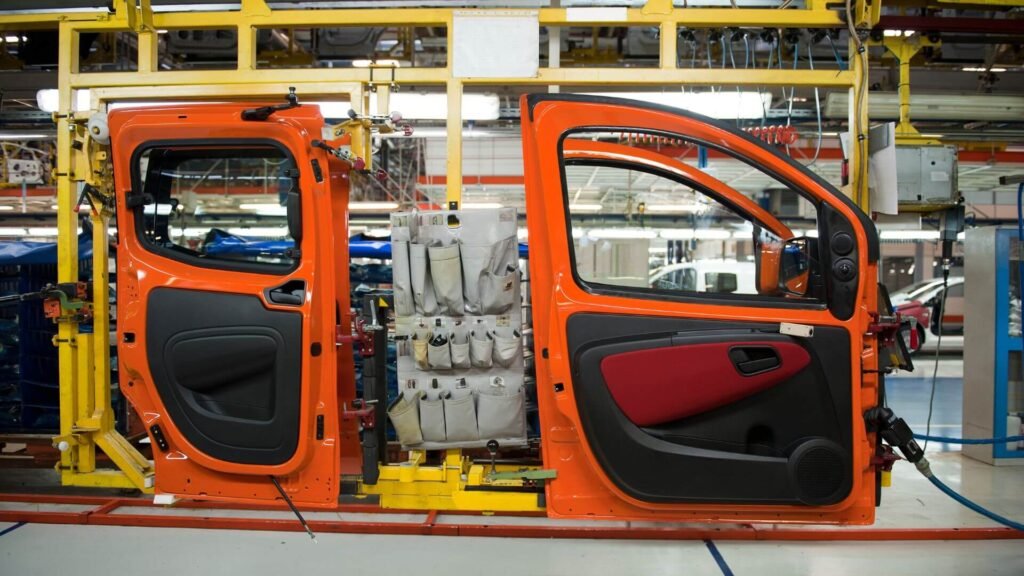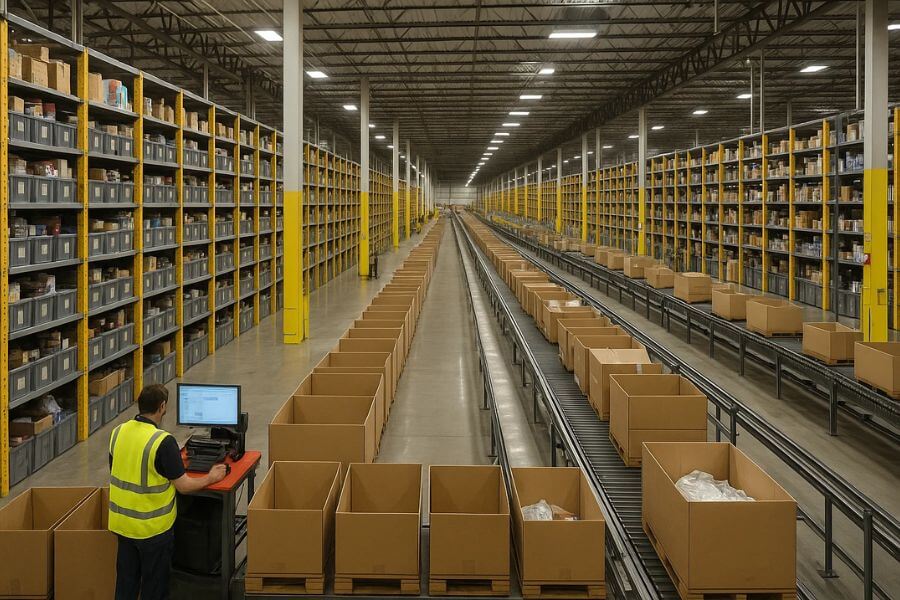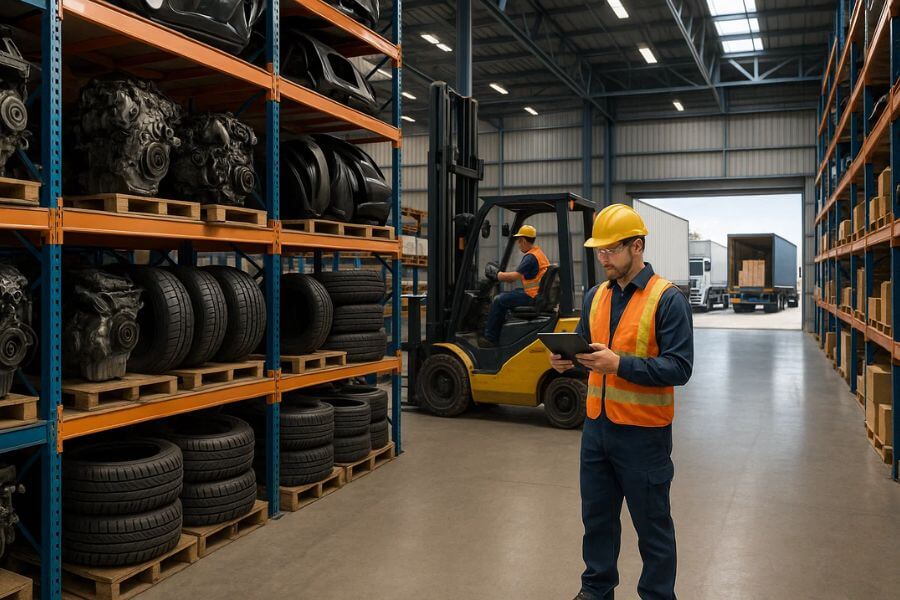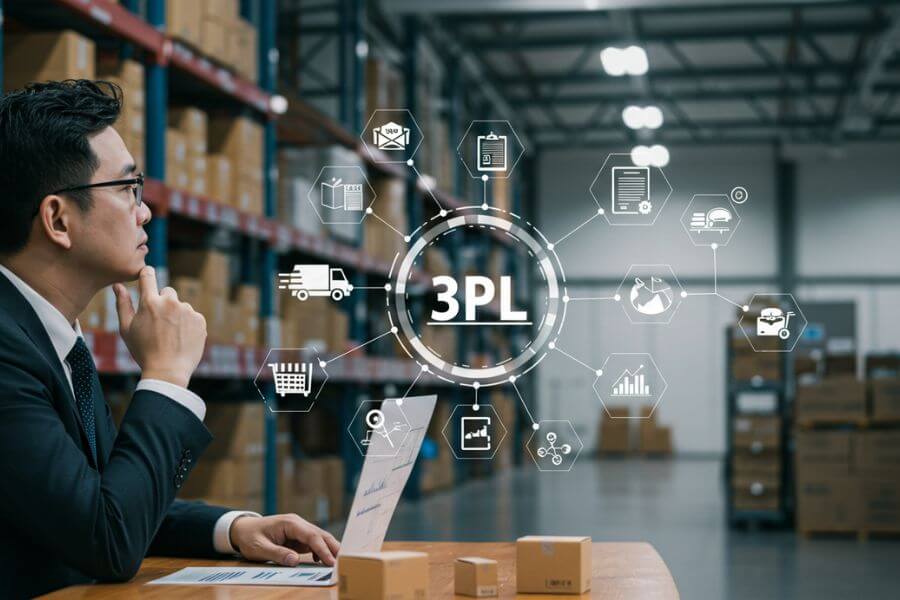The automotive supply chain is one of the most complex value chains in the world of logistics. A gas-powered car can have as many as 30,000 parts, which requires a high level of organization to timely meet manufacturing requirements. Most supply chain networks require tight coordination between suppliers, engineers, and manufacturers to keep operations running smoothly.
It’s no surprise then that many car manufacturers have outsourced their entire transportation networks to specialized automotive logistics companies to manage their supply chains. At the same time, the automotive sector is undergoing a major transformation due to several disruptions in the industry. The rise in the demand for EVs, high fuel prices, and global uncertainty, for example, have tested the automotive industry. Many companies are forced to adapt to these changes or face elimination.
The US automotive industry is expected to grow in the next couple of years before an eventual slowdown, and that means there is an opportunity for supply chain businesses to take advantage of in the meantime. If you’re a supplier who is looking for an opportunity to grow your business in the current scenario, you need to know the major challenges in supply chain today that can limit your growth.
Here are some of the biggest automotive supply chain challenges, and potential solutions to these challenges.
Supply Chain Challenges in the Automotive Industry
1. Lack of Visibility in Supply Chain
The sheer number of parts that go in a car means that any delay in the delivery of even a single component can cause a delay in unit production. This delay eventually affects the entire production line.
Low visibility in supply chain of car components in the supply chain is the root cause of a failure to anticipate the demand for a specific component and procure it for the inventory. Supply chain managers have to scramble to get critical manufacturing parts delivered and if deliveries do not go as planned, then delays are inevitable.
Alternatively, some inventory components may be underused, causing a buildup in inventory stocks which can be a burden on your warehousing space. And if you are outsourcing that space, you may end up paying unnecessary warehousing cost.
Solutions:
- Have a centralized tracking system for all inventory and SCM (supply chain management) communications.
- Understand available delivery routes for supplies and optimize them for the shortest delivery time.
- Streamline all your supply chain processes for greater supply chain visibility.
- Use the power of predictive analytics to forecast demand and track inventory thresholds.
2. The Impact of COVID-19
The COVID-19 outbreak has shown us that a global threat can cause widespread disruptions in the availability of ports and routes. Port shutdowns caused delays, with a price hike in shipping costs. That makes shipping expensive and unsustainable for small suppliers that cannot absorb those costs. Major automakers saw their raw materials supplies dip, causing a drop in output by as much as 40%.
These events are difficult to predict, and their effects are further magnified by their global effect. The pandemic also showed that many companies lacked a competent level of transparency in their supply chains, which further exacerbated the problem of delayed deliveries.
Solutions:
- Monitor supply chain routes and related alerts in real-time.
- Communicate transparently with vendors and suppliers about forthcoming shortages or shutdowns.
- Add flexibility to your supply chain processes.
3. Environmental Challenges
Climate change is responsible for weather-related disruptions in transportation routes. Disruptions can be very severe, especially on routes experiencing extreme weather conditions. Some places are experiencing never-before-seen levels of rainfall, causing flooding. In regions where temperatures are especially high, maintenance costs are rising because of global warming.
Unfortunately, weather conditions have become unpredictable in recent years, and companies are expected to deal with this uncertainty at all costs. Many car manufacturers are now employing sustainability practices that aim to reduce fossil fuel consumption with environmental-friendly packaging. These trends come with a premium, and many companies operating in specific jurisdictions may be required to comply with environmental regulations.
Solutions:
- Consider active monitoring of available routes and weather alerts.
- Work with experts who can add sustainability compliance into your supply chain processes.
- Hire a 3PL solutions provider that can package your supplies with eco-friendly materials.
4. Political and Trade Risks
The automotive industry relies on a global network of suppliers and manufacturers that trade with each other on a massive scale. Industry-level trade disruptions can happen in the wake of favorable or unfavorable trade deals. Any effect will have short-term consequences for local markets and long-term effects on the global automotive industry.
The application of tariffs in specific regional industries favoring other countries in trades/wartime conflicts can also shut down entire economies. We are also seeing a major push towards regulating shipping through international customs, causing an increase in bureaucratic processes. This has been evident in the case of the European automotive industry, where heavy regulation makes it unappealing for international investors.
Solutions:
- Prioritize risk management as a strategic pillar for your supply chain operations.
- Have flexible suppliers and vendors who can expertly deal with cross-border shipments.
- Communicate regulatory changes immediately.
- Speed up your onboarding processes for new suppliers and vendors.
5. Rising Fuel Prices and the Shift to Electric Vehicles
Increasing fossil fuel prices have caused many industries to shift towards alternative energy sources, and the automotive industry is no exception. Consumers and businesses have started buying electric vehicles (EVs) to save on fuel costs, and reduce CO2 emissions. Governments in countries such as Norway, the UK, Germany, and China are leading this shift by providing incentives to EV buyers.
This transition to EVs is creating a ripple effect across the automotive industry in many ways. First, there is a rising demand for EV components, including OEM microprocessor chips. The global disruption of raw material deliveries has hampered manufacturers’ abilities to make enough computer chips to meet demand, causing a chip shortage crisis.
On the logistics side, companies that are investing in EVs have to consider hiring the services of technical experts to handle their new fleet. After all, computers and electric batteries powering electric vehicles mean that software engineers and battery technicians are now heavily involved in the business. For the rest of the automotive supply chain industry that relies on fossil fuels, optimizing routes and fuel usage is the name of the game.
Solutions:
- Consolidate your packages to minimize the distance of delivery routes
- Monitor vehicle health and performance
- Focus on regular maintenance
Conclusion
You need an end-to-end automotive supply chain solution that will streamline your automotive supply chain processes. Keeping pace with the automotive industry requires you to be able to stand up to the risks and challenges of a rapidly-changing global market. For that, you need to build a supply chain that provides complete inventory visibility and process flexibility from start to finish.
Logos Logistics’s automotive logistics services provide a one-stop solution for your business at any stage of your value chain. We offer agile, efficient, and specialized services in the handling of automotive parts and goods. As one of the leading 3PL service providers in the Midwest, we connect automotive exporters and importers with the rest of the world.
With our automotive supply chain solutions, you will be able to:
- Reach anywhere, faster!
- Satisfy your customers
- Get access to expert inspection and handling teams
- Keep your logistics operations and tracking in one place
- Scale up your requirements to meet challenging demands with JIT systems
Our presence near the Big Three US automakers in Detroit means that you’ll be able to get the best sevices for your automotive supply chain business in the region. Contact us today for a quick, no-strings-attached consultation.











